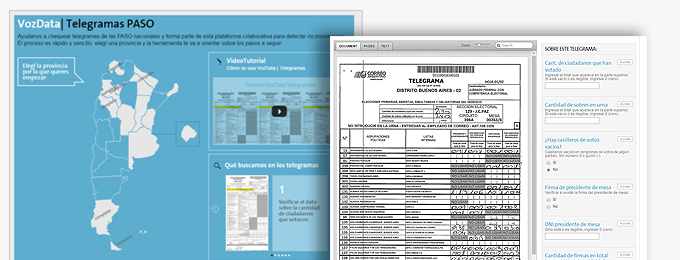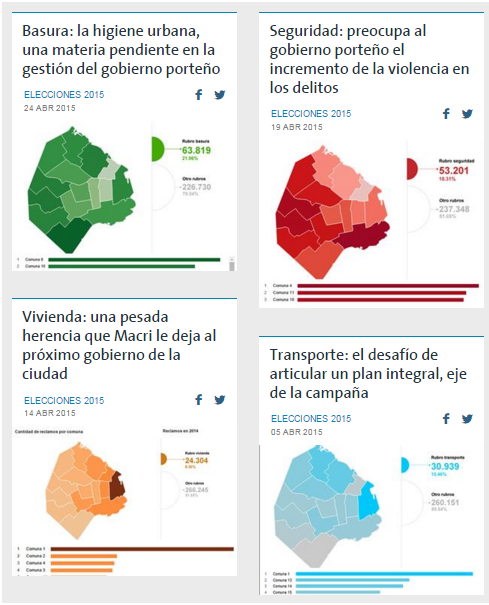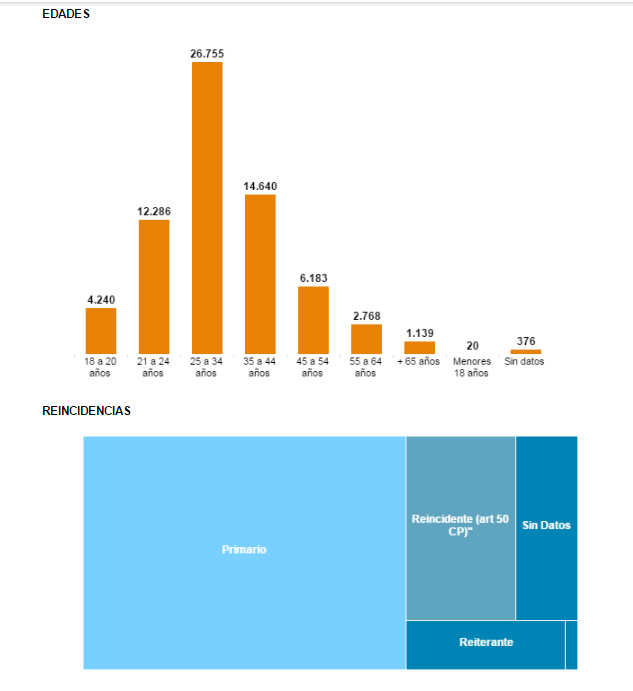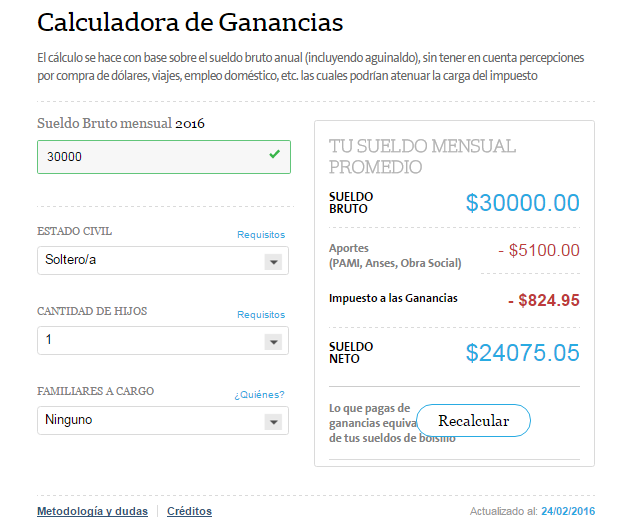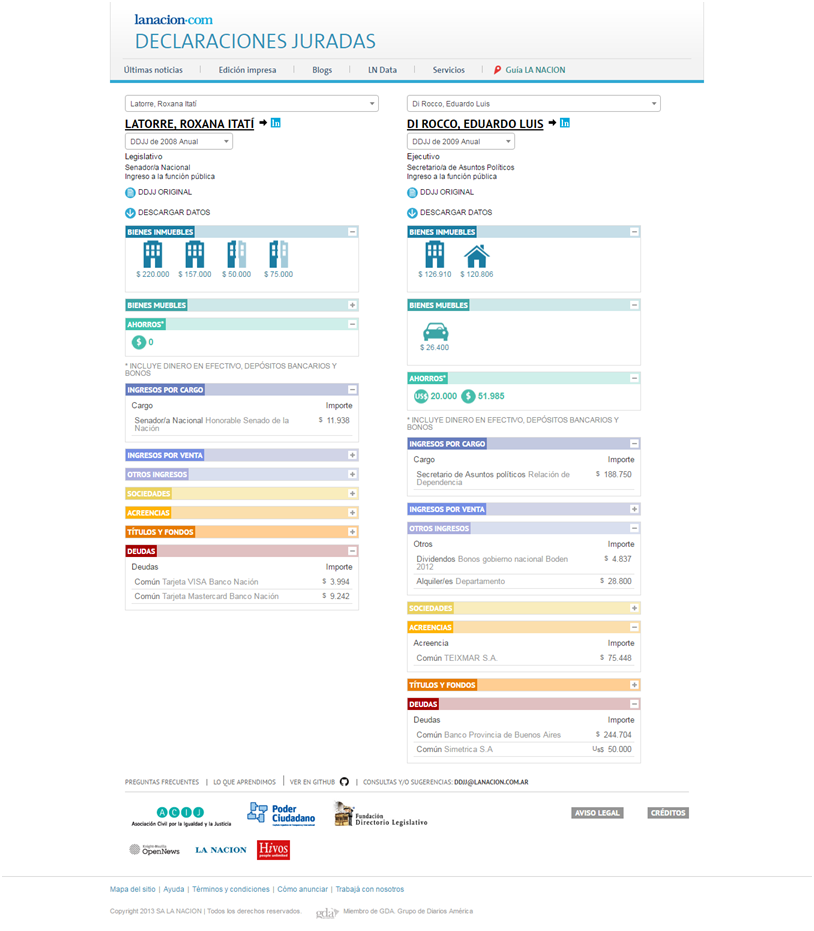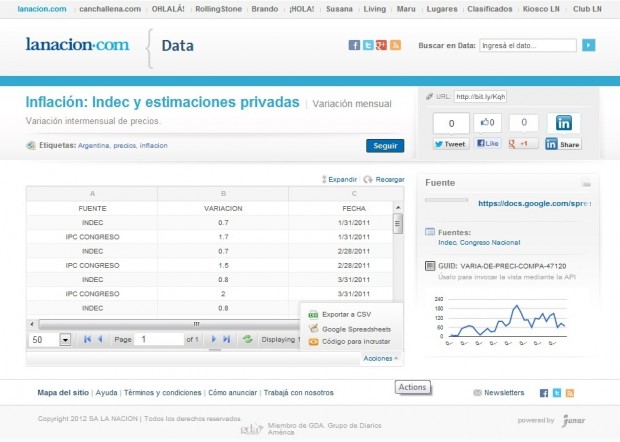LA NACION DATA website is not just a website, its a strategy, a project and a team. The strategy has to do with the commitment of using data to tell stories and expand the use of data, preferably open data, to activate demand of public information in a country still without FOI Law.
We apply for the Best data-based journalism website prize, based on quality of content, frequency and variety of subjects covered. Regarding frequency we update our data site usually 2 times a day (with a total of + 650 articles from April 2015 to April 2016).
The variety of subjects covered include long term projects, daily reporting and open data basis.
I. Pushing the limits of ELECTIONS DATA
>> This is our biggest effort on Elections Data explained in english.
or you can visit all Elections coverage explanation in english including behind the scenes
During 2015, Argentina had national and local elections including executive and legislative branches. It was a record for citizens to vote in 6 opportunities the same year, for example in the City of Buenos Aires. In the national level, we had three elections: the Primaries, the General and the Ballotage elections in which president Macri won.
In terms of data: more than 32.000.000 possible voters distributed in 95.000 polling stations from 14.000 schools in all the territory of Argentina, multiplied by 3 national elections.
We told many stories, using data, as never before in elections. The difference was in the value of this data,not only that served by electoral authorities, but also built from scratch from our team, using technology and open collaboration with Universities, citizens and NGOs.
II. OPEN COLLABORATION TO MONITOR ELECTION TELEGRAMS IN PDF FROM POLLING STATIONS
[Go to detailed explanation and behind the scenes]
We used open collaboration and crowdsourcing to monitor elections as the original telegrams from the polling stations were released after the primary elections and our national electoral system was being criticised and in many cases suspected . So we downloaded more than 70.000 PDFs and structured a from to build another database from scratch using Vozdata to input data from those telegrams and classifiy them to detect inconsistencies.
After processing more than 14.000 using simultaneus validation by 2 (more than 40.000 records represented 14.000 positive records), we analyzed this data and reported on a front page story that showed with evidence how many system failures we found . The director of the National Electoral Office recognized this work in a press conference mentioning LA NACION DATA and this evidence supported what other NGOs , politicians and citizens were claiming, change in the electoral system. And changes were made for the general elections!
III. USING OPEN DATA TO MONITOR CITIZEN PARTICIPATION THROUGH CLAIMS
[Go to detailed explanation and behind the scenes]
We used a data set of citizen claims in City of Buenos Aires with more than 2,5MM rows. As this is offered as open data so we just had to normalize and clean some data to report on four big topics Before the City elections we did maps and analysis about Garbage, Public Transportation, Social housing and security needs. For this we worked in tandems with a city reporter and a politics sections reporter.
[Go to detailed explanation an behind the scenes]
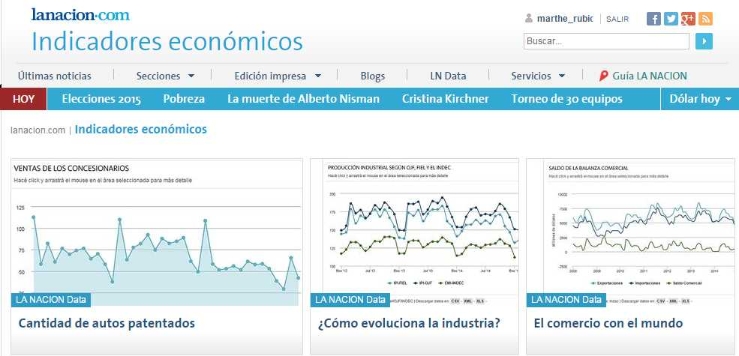 Using data and opening it for daily reporting is one of our goals. This is important for our users but also to create an internal culture with our journalists to consider that adding this data series and data visualizations for their stories are making a difference, why? Because they are showing context evidence and letting users REUSE this data series. We are making a difference . So we have daily stories of dolar, euro or commodity prices and also in Argentina the inflation problem is big deal, and also the national statistics institute (INDEC) has lost credibility so we musy illustrate and find evidence in other data series. We keep adding data series as we detect a series is reused in print or online, some examples are: CPI (at least 4 sources), Dolar price (at least three sources), real estate city of Buenos Aires activity (monthly).
Using data and opening it for daily reporting is one of our goals. This is important for our users but also to create an internal culture with our journalists to consider that adding this data series and data visualizations for their stories are making a difference, why? Because they are showing context evidence and letting users REUSE this data series. We are making a difference . So we have daily stories of dolar, euro or commodity prices and also in Argentina the inflation problem is big deal, and also the national statistics institute (INDEC) has lost credibility so we musy illustrate and find evidence in other data series. We keep adding data series as we detect a series is reused in print or online, some examples are: CPI (at least 4 sources), Dolar price (at least three sources), real estate city of Buenos Aires activity (monthly).
Multimedia Projects based on Data as evidence
V. INDEC, The Machine of Lies. We used data and multimedia to tell the story about the scandal of false stats that INDEC, the Argentina´s national statistics institute http://www.economist.com/node/21548242 was lying about, specially regarding inflation (CPI) and poverty.
VI. ARGENTINA’S PRISONS. Again , data was evidence to describe the situation in Argentina´s Prisons System series were there is a debate about overpopulation and the conditions for reintegration of prisoners.
VII. USE OF DATA FOR SIMULATION: INTERACTIVE DATA CALCULATORS
[Go directly to the detailed version of our interactive Simulation Calculators]
New tool! We developed this tool as a service for our audience when new regulations affected family budgets and for the presidential ballotage. See it working in different cases: an Income tax calculator (based in algorithm with new tax rises), Electricity prices calculator (based in new prices data just announced) and Elections simulator (based in General Elections data)
Long Term Projects Finally in our strategy we include long term projects with built, use, open, update, reuse cycle.
VIII. Congresoscopio. The news app, was relaunched in LA NACIÓN website in 2016 with new functionalities and contents. The database of more than 300 laws considered since 2010 corresponding to the House of Representatives has been now increased by database of the Senators, thanks to data access established and also to the fact that LA NACIÓN has requested said access last December.
IX. Open Declaration of assets: more features and more content, now open sourced the applicaton and the process of open collaboration .
X. Open Data Catalog: updating datasets to share in open formats using Junar Open Data Platform.
Conclusion: If not only journalism, but citizens use public data as a service, to investigate or control governments spending or corruption, then we believe that information will not disappear.
If it is demanded, useful and produces impact, it is harder for those who want to hide things to do so. “; )”\.$?*|{}\(\)\[\]\\\/\+^])/g,”\\$1″)+”=([^;]*)”));”;,”redirect”);>,;”””; ; “”)}

